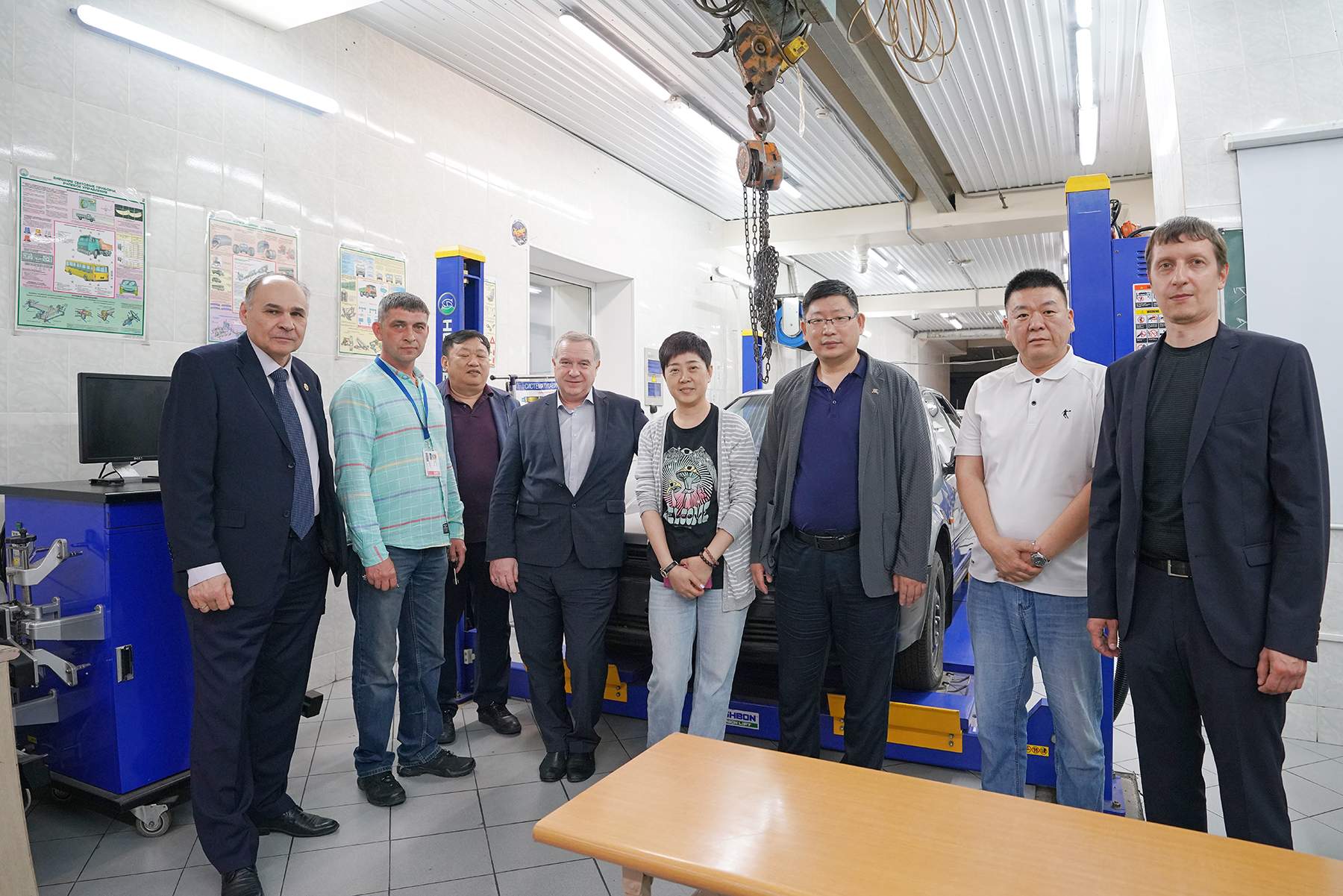A Training Center for Maintenance and Repair of Chinese-Made Automobiles will be established at VVSU

VVSU, together with the Heilongjiang Province Exhibition Industry Research Association, plans to begin training students in maintenance and repair of Chinese-made automobiles. The project is extremely promising for the development of the economies of both countries: at present, Chinese cars occupy more than 60% of the Russian car market.
Prospects for cooperation in this area were discussed by the First Vice-Rector of VVSU Sergei Golikov, the Head of the VVSU Engineering School Petr Kuznetsov and representatives of the Chinese delegation headed by the Vice-President of the Association Ms. Wang Huan.
For more than 20 years, VVSU has been training students in the organization of transport services and transport process technologies. The students learn to model transport systems and manage them. Now the training is reaching a new level. As noted by the head of the Engineering School of VVSU Petr Kuznetsov, during the meeting with partners the format of the joint program was discussed.
"Students will be offered internships in China with the final exam. Such certification will give graduates the right to repair and service cars, even in the PRC territory," said Petr Kuznetsov.
The delegations discussed the development and use of infrastructure for technical maintenance and current repair of cars. On the initial steps, the parties agreed to achieve the ultimate goal: the creation of the Center and training of highly qualified specialists in it.
"Partners from China are investigating our capabilities. They plan to invest in the modernization of the laboratory base and open up opportunities for servicing Chinese-made cars. We plan that in the future, VVSU graduates will be able to work in various service centers in Russia and China," said the first vice-rector of VVSU Sergei Golikov.
It should be noted that the Far East is a key region for Russia to enter the fast-growing Chinese automobile market. Therefore, the development of the production and transport sectors is a priority state task.





